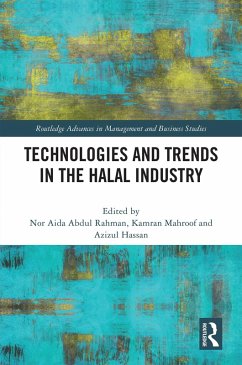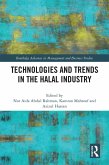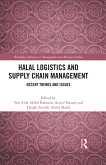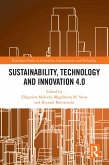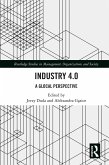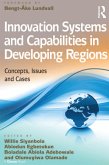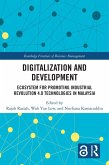Technologies and Trends in the Halal Industry (eBook, ePUB)
Redaktion: Abdul Rahman, Nor Aida; Hassan, Azizul; Mahroof, Kamran
42,95 €
42,95 €
inkl. MwSt.
Sofort per Download lieferbar

21 °P sammeln
42,95 €
Als Download kaufen

42,95 €
inkl. MwSt.
Sofort per Download lieferbar

21 °P sammeln
Jetzt verschenken
Alle Infos zum eBook verschenken
42,95 €
inkl. MwSt.
Sofort per Download lieferbar
Alle Infos zum eBook verschenken

21 °P sammeln
Technologies and Trends in the Halal Industry (eBook, ePUB)
Redaktion: Abdul Rahman, Nor Aida; Hassan, Azizul; Mahroof, Kamran
- Format: ePub
- Merkliste
- Auf die Merkliste
- Bewerten Bewerten
- Teilen
- Produkt teilen
- Produkterinnerung
- Produkterinnerung

Bitte loggen Sie sich zunächst in Ihr Kundenkonto ein oder registrieren Sie sich bei
bücher.de, um das eBook-Abo tolino select nutzen zu können.
Hier können Sie sich einloggen
Hier können Sie sich einloggen
Sie sind bereits eingeloggt. Klicken Sie auf 2. tolino select Abo, um fortzufahren.

Bitte loggen Sie sich zunächst in Ihr Kundenkonto ein oder registrieren Sie sich bei bücher.de, um das eBook-Abo tolino select nutzen zu können.
This edited volume examines the current issues, development and trends of technology applications in the Halal industry and the theories underpinning Halal technology studies. It will interest scholars whose research areas are around tourism and travel, pharmaceutical and medical, logistics, management and information technology.
- Geräte: eReader
- mit Kopierschutz
- eBook Hilfe
Andere Kunden interessierten sich auch für
![Technologies and Trends in the Halal Industry (eBook, PDF) Technologies and Trends in the Halal Industry (eBook, PDF)]() Technologies and Trends in the Halal Industry (eBook, PDF)42,95 €
Technologies and Trends in the Halal Industry (eBook, PDF)42,95 €![Halal Logistics and Supply Chain Management (eBook, ePUB) Halal Logistics and Supply Chain Management (eBook, ePUB)]() Halal Logistics and Supply Chain Management (eBook, ePUB)44,95 €
Halal Logistics and Supply Chain Management (eBook, ePUB)44,95 €![Sustainability, Technology and Innovation 4.0 (eBook, ePUB) Sustainability, Technology and Innovation 4.0 (eBook, ePUB)]() Sustainability, Technology and Innovation 4.0 (eBook, ePUB)43,95 €
Sustainability, Technology and Innovation 4.0 (eBook, ePUB)43,95 €![Industry 4.0 (eBook, ePUB) Industry 4.0 (eBook, ePUB)]() Jerzy DudaIndustry 4.0 (eBook, ePUB)44,95 €
Jerzy DudaIndustry 4.0 (eBook, ePUB)44,95 €![Innovation Systems and Capabilities in Developing Regions (eBook, ePUB) Innovation Systems and Capabilities in Developing Regions (eBook, ePUB)]() Willie SiyanbolaInnovation Systems and Capabilities in Developing Regions (eBook, ePUB)47,95 €
Willie SiyanbolaInnovation Systems and Capabilities in Developing Regions (eBook, ePUB)47,95 €![Corporate Environmental Accountability in Nigeria (eBook, ePUB) Corporate Environmental Accountability in Nigeria (eBook, ePUB)]() Felix Moses EdohoCorporate Environmental Accountability in Nigeria (eBook, ePUB)42,95 €
Felix Moses EdohoCorporate Environmental Accountability in Nigeria (eBook, ePUB)42,95 €![Digitalization and Development (eBook, ePUB) Digitalization and Development (eBook, ePUB)]() Digitalization and Development (eBook, ePUB)0,00 €
Digitalization and Development (eBook, ePUB)0,00 €-
-
-
This edited volume examines the current issues, development and trends of technology applications in the Halal industry and the theories underpinning Halal technology studies. It will interest scholars whose research areas are around tourism and travel, pharmaceutical and medical, logistics, management and information technology.
Dieser Download kann aus rechtlichen Gründen nur mit Rechnungsadresse in A, B, BG, CY, CZ, D, DK, EW, E, FIN, F, GR, HR, H, IRL, I, LT, L, LR, M, NL, PL, P, R, S, SLO, SK ausgeliefert werden.
Produktdetails
- Produktdetails
- Verlag: Taylor & Francis eBooks
- Seitenzahl: 288
- Erscheinungstermin: 22. November 2023
- Englisch
- ISBN-13: 9781000929980
- Artikelnr.: 69137936
- Verlag: Taylor & Francis eBooks
- Seitenzahl: 288
- Erscheinungstermin: 22. November 2023
- Englisch
- ISBN-13: 9781000929980
- Artikelnr.: 69137936
- Herstellerkennzeichnung Die Herstellerinformationen sind derzeit nicht verfügbar.
Nor Aida Abdul Rahman is an Associate Professor at Universiti Kuala Lumpur, Malaysia, and currently serves as a Head of Aviation Management at Universiti Kuala Lumpur (Malaysian Institute of Aviation Technology Campus) in Subang, Selangor, Malaysia. She is also a Fellow at UKM-MPOB Endowment Chair at National University of Malaysia. Her research interest is in halal logistics and supply chain, logistics and supply chain performance, logistics branding, aviation management and air travel. Her work has appeared in Industrial Marketing Management, Journal of Islamic Marketing, Journal of Humanitarian Logistics and Supply Chain Management, Journal of Quality and Reliability and Management, and others. She has also published a number of book chapters, books, edited books, refereed conference proceedings, and is part of the editorial team of book projects with Routledge and Springer. Kamran Mahroof is an Associate Professor in Supply Chain Analytics and Programme Leader for MSc Applied Artificial Intelligence and Data Analytics in the Faculty of Management, Law and Social Sciences, University of Bradford. He has extensive practical experience having worked in various positions for leading companies, most recently in retail, where he led business improvement initiatives in logistics and supply chain. His industrial experience has helped shape his research interests, through which he is actively researching in the areas of technology adoption, Industry 4.0 technologies, circular economy, and applied artificial intelligence. Azizul Hassan is a member of the Tourism Consultants Network of the UK Tourism Society. Hassan's research interest areas are technology-supported marketing for tourism and hospitality, immersive technology application in the tourism and hospitality industry, technology influenced marketing suggestions for sustainable tourism and hospitality industry in developing countries. Hassan has authored over 100 articles and book chapters in leading tourism outlets.
Contents
Introduction
Section 1 Halal Industry: An Overview
1 Global Halal Industry Outlook: Current Issues and Development
2 Halal Industry 4.0: Current and Future Trends
Section 2 Literature Review and Underpin Theory in Halal Technology
Research
3 Technology Adoption in Halal Industry: A Review
4 Diffusion Innovation Technology (DIT) and Institutional Theory in
Researching Halal Technology Study
5 Theory of Planned Behavior (TPB) and Theory of Reasoned Action (TRA) in
Halal Technology Study
Section 3 Technology in Selected Halal Sector
6 A Technology Comparison of Slaughtering Technique & Physiological
Possibilities During The Halal Slaughtering
7 Halal Matters in Halal Food Manufacturing: How Halal Manufacturers Can
Benefit from Technology Application
8 Halal slaughtering Process: Methods and Technology Used
9 Halal technology in Shariah Cleansing: Multiple cases of Sertu
Application
10 Halal Mobile technology in Tourism: Current Status in Spain
11 Current and Future Usage of RFID based technology in Halal food
validation system: Case of Southeast Asia
12 Blockchain technology and Halal certification: Issues and Developments
13 Tracking and tracing technology in upholding Halal product integrity: A
Review
14 Technology Application in Halal Logistics: Transport and Warehouse
Perspective
15 Technology and Halal Retailing Sector: Digital transaction and What is
new?
Section 4 Recent Issues in Halal Industries
16 Pandemic Covid 19: How Halal Tourism Operator utilizes technology for
recovery
17 Hard Hit by Halal Meat Cartel controversy: How Blockchain Technology and
Internet of Things (IOT) could help
Conclusion
Introduction
Section 1 Halal Industry: An Overview
1 Global Halal Industry Outlook: Current Issues and Development
2 Halal Industry 4.0: Current and Future Trends
Section 2 Literature Review and Underpin Theory in Halal Technology
Research
3 Technology Adoption in Halal Industry: A Review
4 Diffusion Innovation Technology (DIT) and Institutional Theory in
Researching Halal Technology Study
5 Theory of Planned Behavior (TPB) and Theory of Reasoned Action (TRA) in
Halal Technology Study
Section 3 Technology in Selected Halal Sector
6 A Technology Comparison of Slaughtering Technique & Physiological
Possibilities During The Halal Slaughtering
7 Halal Matters in Halal Food Manufacturing: How Halal Manufacturers Can
Benefit from Technology Application
8 Halal slaughtering Process: Methods and Technology Used
9 Halal technology in Shariah Cleansing: Multiple cases of Sertu
Application
10 Halal Mobile technology in Tourism: Current Status in Spain
11 Current and Future Usage of RFID based technology in Halal food
validation system: Case of Southeast Asia
12 Blockchain technology and Halal certification: Issues and Developments
13 Tracking and tracing technology in upholding Halal product integrity: A
Review
14 Technology Application in Halal Logistics: Transport and Warehouse
Perspective
15 Technology and Halal Retailing Sector: Digital transaction and What is
new?
Section 4 Recent Issues in Halal Industries
16 Pandemic Covid 19: How Halal Tourism Operator utilizes technology for
recovery
17 Hard Hit by Halal Meat Cartel controversy: How Blockchain Technology and
Internet of Things (IOT) could help
Conclusion
Contents
Introduction
Section 1 Halal Industry: An Overview
1 Global Halal Industry Outlook: Current Issues and Development
2 Halal Industry 4.0: Current and Future Trends
Section 2 Literature Review and Underpin Theory in Halal Technology
Research
3 Technology Adoption in Halal Industry: A Review
4 Diffusion Innovation Technology (DIT) and Institutional Theory in
Researching Halal Technology Study
5 Theory of Planned Behavior (TPB) and Theory of Reasoned Action (TRA) in
Halal Technology Study
Section 3 Technology in Selected Halal Sector
6 A Technology Comparison of Slaughtering Technique & Physiological
Possibilities During The Halal Slaughtering
7 Halal Matters in Halal Food Manufacturing: How Halal Manufacturers Can
Benefit from Technology Application
8 Halal slaughtering Process: Methods and Technology Used
9 Halal technology in Shariah Cleansing: Multiple cases of Sertu
Application
10 Halal Mobile technology in Tourism: Current Status in Spain
11 Current and Future Usage of RFID based technology in Halal food
validation system: Case of Southeast Asia
12 Blockchain technology and Halal certification: Issues and Developments
13 Tracking and tracing technology in upholding Halal product integrity: A
Review
14 Technology Application in Halal Logistics: Transport and Warehouse
Perspective
15 Technology and Halal Retailing Sector: Digital transaction and What is
new?
Section 4 Recent Issues in Halal Industries
16 Pandemic Covid 19: How Halal Tourism Operator utilizes technology for
recovery
17 Hard Hit by Halal Meat Cartel controversy: How Blockchain Technology and
Internet of Things (IOT) could help
Conclusion
Introduction
Section 1 Halal Industry: An Overview
1 Global Halal Industry Outlook: Current Issues and Development
2 Halal Industry 4.0: Current and Future Trends
Section 2 Literature Review and Underpin Theory in Halal Technology
Research
3 Technology Adoption in Halal Industry: A Review
4 Diffusion Innovation Technology (DIT) and Institutional Theory in
Researching Halal Technology Study
5 Theory of Planned Behavior (TPB) and Theory of Reasoned Action (TRA) in
Halal Technology Study
Section 3 Technology in Selected Halal Sector
6 A Technology Comparison of Slaughtering Technique & Physiological
Possibilities During The Halal Slaughtering
7 Halal Matters in Halal Food Manufacturing: How Halal Manufacturers Can
Benefit from Technology Application
8 Halal slaughtering Process: Methods and Technology Used
9 Halal technology in Shariah Cleansing: Multiple cases of Sertu
Application
10 Halal Mobile technology in Tourism: Current Status in Spain
11 Current and Future Usage of RFID based technology in Halal food
validation system: Case of Southeast Asia
12 Blockchain technology and Halal certification: Issues and Developments
13 Tracking and tracing technology in upholding Halal product integrity: A
Review
14 Technology Application in Halal Logistics: Transport and Warehouse
Perspective
15 Technology and Halal Retailing Sector: Digital transaction and What is
new?
Section 4 Recent Issues in Halal Industries
16 Pandemic Covid 19: How Halal Tourism Operator utilizes technology for
recovery
17 Hard Hit by Halal Meat Cartel controversy: How Blockchain Technology and
Internet of Things (IOT) could help
Conclusion
